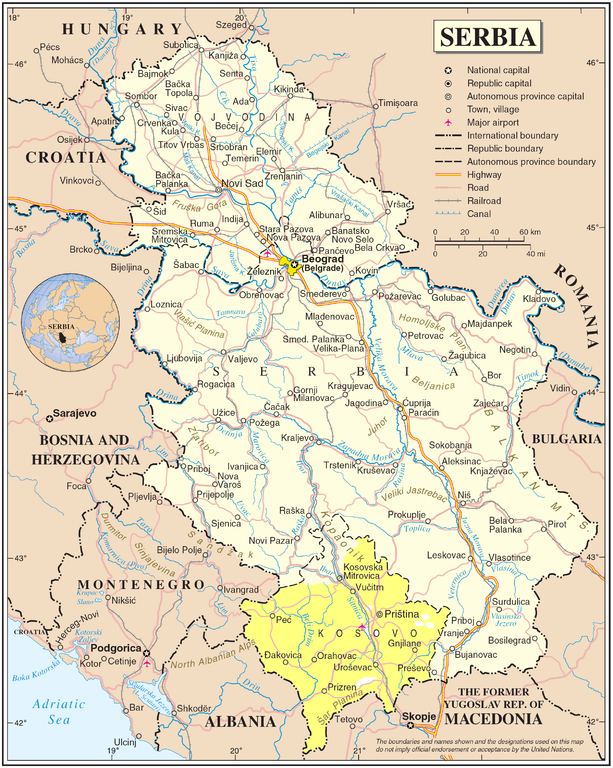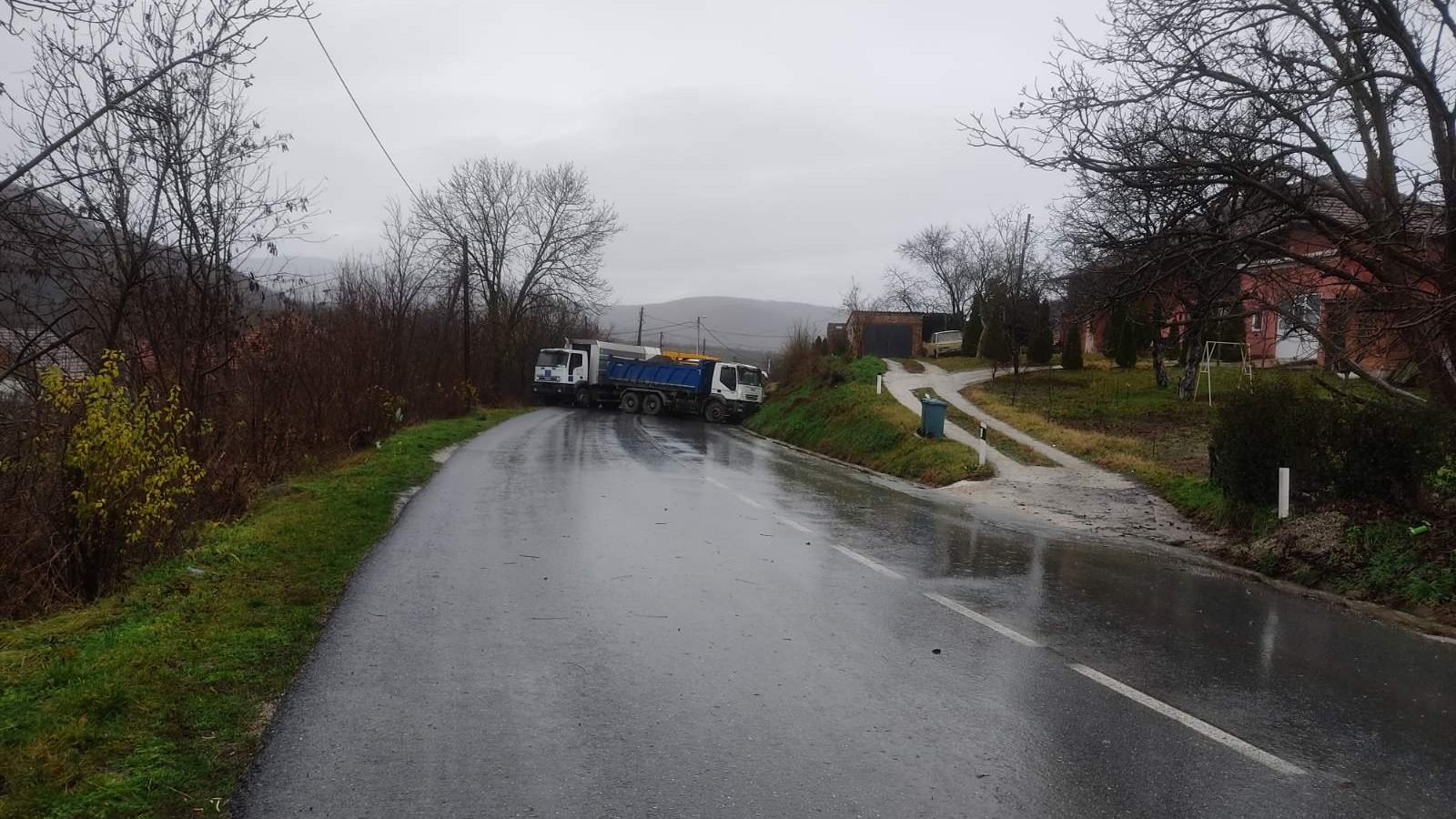The barricades on roads in the north of the breakaway province of Kosovo have been removed by a NATO security mission, diffusing sky-high tensions that broke out mid-December and persisted over Boxing Day.
KFOR said it had removed the vehicles to make roads in the north of Kosovo-Metohija passable and restore freedom of movement, Tanjung reported.
Since the conflict between Serbia and Kosovo in 1998, ethnic Serbs living in the north of the breakaway province of Kosovo occasionally barricade major border roads with trucks in protest of reportedly harsh treatment by ethnically-Albanian Kosovar security forces.
This latest round of barricading, which saw Serbian President Aleksandr Vuvic mobilize the Serbian army, arose in response to the arrests of Serb police officers Milan Adzic, Sladjan Trajkovic, and Dejan Pantic in northern Kosovo, and to the presence of special police troops in the north of Kosovo-Metohija.
Although the standoff highlighted the significant failures of the EU, NATO, and the US to act as the international moderators and peacemakers they believe themselves to be, it garnered almost no Western media attention.

Why the ethnic tensions?
In order to end the conflict between Serbia and its southern province, the United Nations Security Council (UNSC) passed resolution 1244, which while mandating a ceasefire and disarmament of the terrorist/freedom fighters of the Kosovo Liberation Army (KLA), it also allowed Serbia to enter the province militarily should ethnic Serbs in Kosovo come under persecution as had been done during the conflict.
However, from its de facto capital of Pristina, Kosovo unilaterally announced it was an independent nation in 2008. Many nations, including all the Western security states, wasted no time in recognizing Kosovo’s claim, but many still do not, and the current President Vuvic claims that more and more are changing their official position to recognizing Kosovo as part of Serbia.
Spain, China, Russia, as well as near neighbors Greece, Romania, Bosnia Herzegovina, and Slovakia do not recognize the independence of Kosovo.
Shortly after this most recent round of tensions ended, the EU and US released a joint statement calling on Belgrade and Pristina to return to “nurturing an environment conducive to reconciliation, regional stability, and cooperation for the benefit of their citizens”.
It added that the US will support the work of the European Union through its Rule of Law Mission in Kosovo (EULEX) to monitor all investigations and subsequent proceedings to promote respect for human rights.
Many in Serbia, not least of which President Vuvic, believe Kosovo exists at the pleasure of nations like the US, UK, Germany, and France, who guarantee its protection and its rights for broader NATO purposes.
Indeed, a German paper Die Zeit recently published an editorial claiming that Vuvic is undermining NATO and EU stability, and that he should be “tamed” with a “strong hand”.
Likewise, Special Western Balkan Envoy for the US State Dept. Gabriel Escobar seethed about Vuvic’s announcement to hold to UNSC Res. 1244 and deploy troops into Kosovo on December 16th, saying “I will underline, Kosovo has strong security guarantees from the US, which are manifested by participation in KFOR”.
At the moment, Escobar has no plans for visiting Serbia after the barricades were taken down, underpinning an obvious disinterest in the region and the conflict at large. WaL



